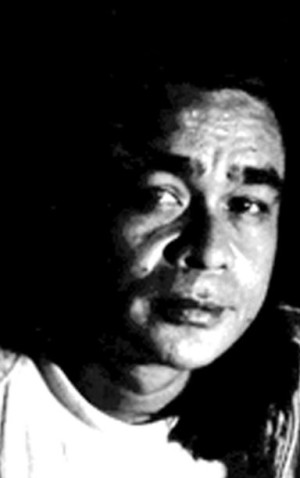
RAYMUND FERNANDEZ
In judging any person’s success, especially one’s own, one ought use for reference how one defines the point of all this. There is always the question of meaning. The same question of meaning one applies in the reading of art. Every person’s life is her art. One might measure art for the value of it, represented in units of money paid. Or one may use the measure of what the art actually does: How valuable to us the substance of it is? What does it say of the world and the artist herself?
And so a man or woman might become president, might become the most powerful person of the country. He might use all his powers to amass wealth, might amass a coterie of allies to cement his power and wealth; But what of it? These things never last. In the end, history makes fools of us all; if not, it makes us all honest men. It reveals exactly what we have done. It reveals us in the sense of the meaning of those things done, the totality of our lives. The jokers will be read for what they are. A sad ironic joke.
On the other hand, there is the bright sunny day, perhaps accented later on in the afternoon by a bit of shower, a bit of a cool breeze. And one ought judge one’s self with reference to the sun and the cool shower. Did you even know it was there? Did you feel wind and water on your face? Did you smile to it as you always did when you were a little child in the summer? And you might as well ask: What finally is the point of all this?
Not the measure of power and wealth. The meaning of life is not measured even by the number of sunny days one has, nor the number of other things grand, the number of mornings and afternoons, the number of cool windy showers. It must be measured by other things besides. The world going crazy as it is, one must search for the most fundamental meanings. And for that, one must find the true measure of joy and happiness. And as one might guess, one cannot really measure joy and happiness by dwelling on one’s own. For the only way we may truly perceive and relish joy and happiness is by seeing it reflected in others and in the world that is all about us. Which is why it is so many times greater to help solve the problems of the world than to amass power and wealth for its own sake.
The world really has just one fundamental problem. And it is the inequality between us — the fact of so few having so much more than they need, while we see so many who have nothing at all, not even hope, so many who are poor and suffering. And what of the planet itself? Do we contribute or take away?
And all these finally have to do with our faith in history and time. Will we still matter even after we are gone? Time travels inexorably forward. Does time remember? Will it remember the good things over the bad? We cannot tell for certain. But we do know that people remember. People remember collectively. There is a narrative we tell each other and ourselves. And we will keep telling it over and over again over time. We are all fated, some doomed, to become a small story inside the bigger one. We cannot tell the future. But we can have an inkling, even a faith, of it. We can choose what we will not be remembered as. That is within our control. For instance, we can choose whether or not to be remembered as trolls for the powers that be. Or we can choose to be remembered for better things than that.
We can choose to be remembered for truth and goodness, those things whose value derives from the most fundamental things, justice, equality, and especially the common good. This is the choice we make. And if we can only feel joyful and happy for making this choice, then we should feel content with what we have, no matter how humble. We should feel content now until the very last moment of time.